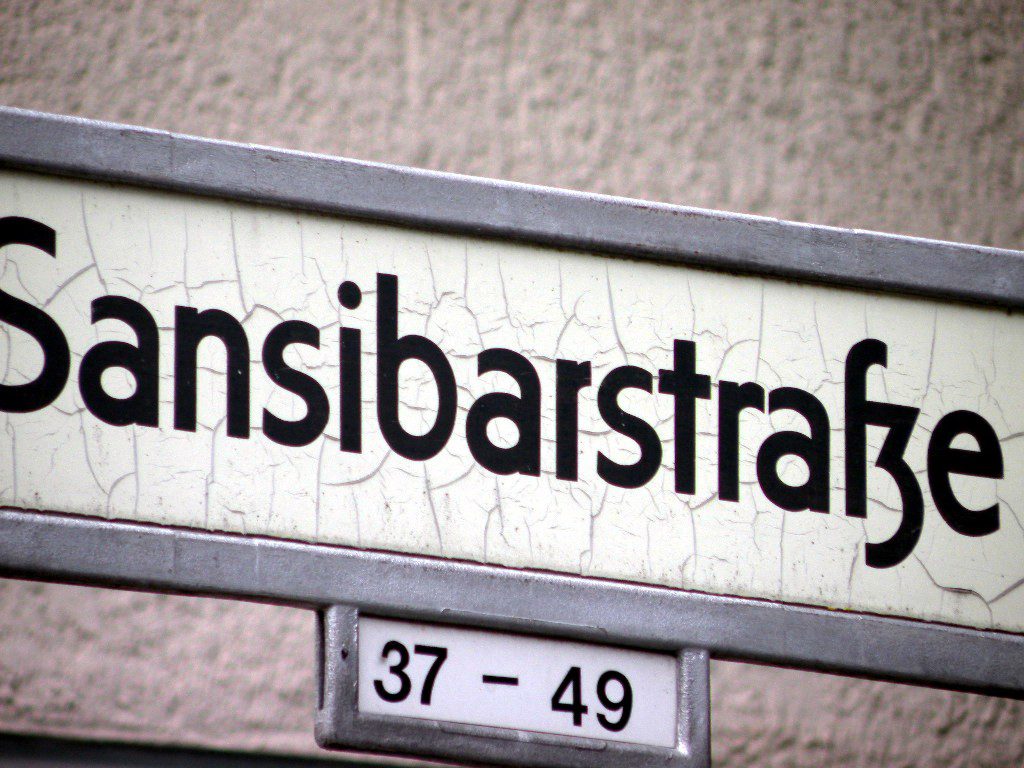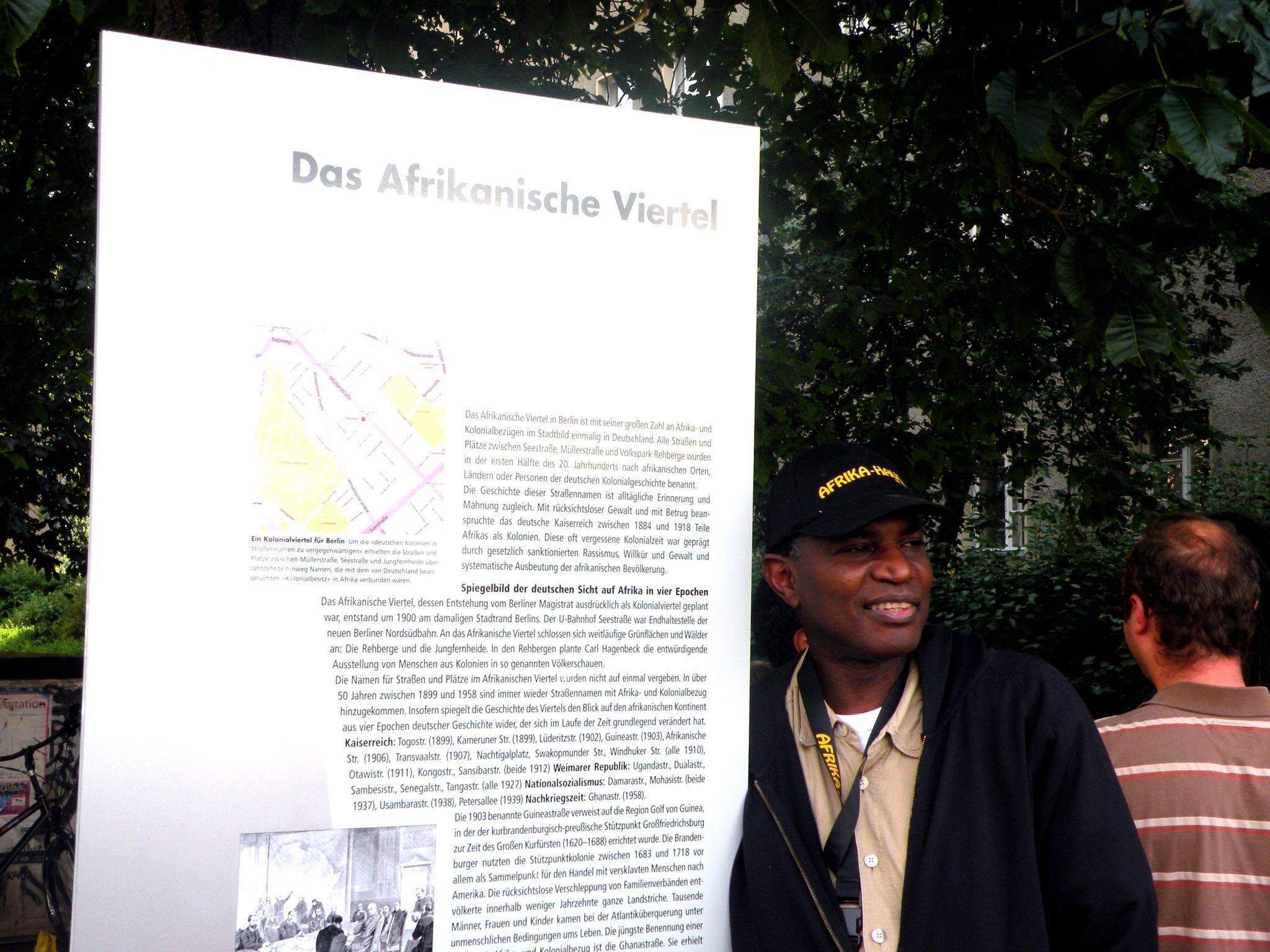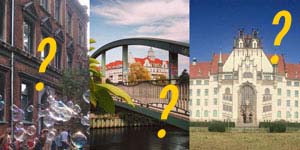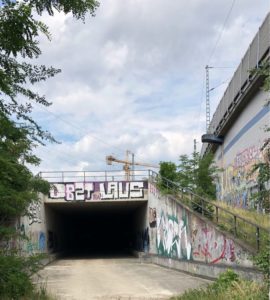For years, thousands of African refugees have been dying in the Mediterranean Sea. Only few ever reach the European continent. Again and again, politicians express their horror – with no effect on asylum bureaucracy and the situation in Africa. Some of the traumatized survivors have arrived at Paul-Gerhard-Stift in Berlin ‑Wedding, where they get treated – right in the “African Quarter”. How do they feel when they read the street names which are probably well-known to them?
 What do these street names mean to us? For most of us, “African Quarter” is just a name for the Kiez, such as the “Dutch Quarter” or the “English Quarter”. That is a misconception, though: Between 1899 and 1958, new streets with street names related to Africa were introduced here. Around 30 names mirror very different view points on Africa. In the beginning, colonial fantasies were eternalized while just recently Ghanastreet was named in honour of the African states which free themselves from colonialist powers.
What do these street names mean to us? For most of us, “African Quarter” is just a name for the Kiez, such as the “Dutch Quarter” or the “English Quarter”. That is a misconception, though: Between 1899 and 1958, new streets with street names related to Africa were introduced here. Around 30 names mirror very different view points on Africa. In the beginning, colonial fantasies were eternalized while just recently Ghanastreet was named in honour of the African states which free themselves from colonialist powers.
Since May 2012, an information board at the subway station Rehberge informs about this unique memorial of colonial history. The board was initiated by the Berlin SPD (Social Democrat’s Party) and features, amongst others, texts by members of the African community.
 The board reminds about the past and gives us a mission for the present, as the history of German colonialism is often neglected. While there are many memorials around SED and Nazi regimes, there is none for German colonialism. Now, trying to involve artists, schools and, most importantly, members of African communities, various shades of colonialist times are being pushed into public awareness. Also, more and more tours deal with this topic and explain German history in Africa in the African Quarter.
The board reminds about the past and gives us a mission for the present, as the history of German colonialism is often neglected. While there are many memorials around SED and Nazi regimes, there is none for German colonialism. Now, trying to involve artists, schools and, most importantly, members of African communities, various shades of colonialist times are being pushed into public awareness. Also, more and more tours deal with this topic and explain German history in Africa in the African Quarter.
100 years after the end of colonialist aspirations in Germany it is more than time to openly. take responsibility. More and more requests come up to rename streets which were named after colonial “heroes”. Local politicians will have to find solutions together with the residents. One thin is clear: In the long run, the discrepancy between a political fight against racism and having racists honoured in street names needs to be solved.
Of course, the historical responsibility does not end with the exchange of street signs. A basic understanding for how our great-grandfathers have used the African population with barbaric measures needs to be created. The growing memorial in the African Quarter is a small step towards creating a consciousness for our historical responsibility, which also lies in meeting African refugees at European borders with help and humanity.
Guest article by Dr. Matthias Dahlke
First published in “Notizen” (Paul Gerhardt Stift); Müllerstr. 56 – 58
Translation: Daniela Hombach
More on Wedding’s English Language Facebook-Page “Der schöne Wedding”




